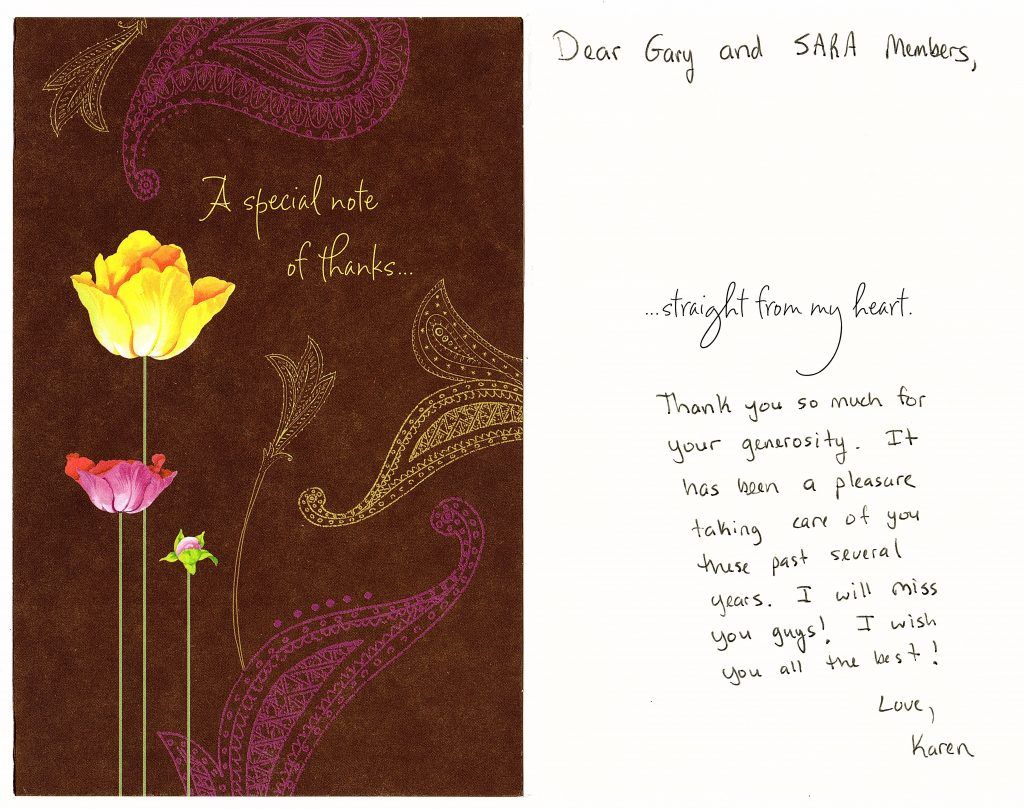Polly Holliday, an accomplished and adaptable actress whose vibrant career spanned decades on stage and screen, and who etched herself into the American cultural lexicon with her portrayal of the sassy, gum-chewing waitress Flo on the long-running CBS sitcom “Alice,” has died at her Manhattan home. She was 88. Her passing, confirmed by her theatrical agent and friend, Dennis Aspland, marks the quiet departure of an artist whose work embodied both sharp humor and relatable warmth, leaving an indelible mark on audiences.
Holliday’s extensive resume extended far beyond the iconic character of Florence Jean Castleberry, a role that earned her widespread recognition, two Golden Globe Awards, and multiple Emmy nominations. She was a dedicated stage actor, receiving a Tony Award nomination for her poignant portrayal of “Big Mama” in a 1990 revival of Tennessee Williams’s “Cat on a Hot Tin Roof,” and graced the big screen in memorable roles such as the wicked Mrs. Deagle in “Gremlins” and a protective secretary in “All the President’s Men.” Her career was a testament to her versatility and her unwavering commitment to her craft, whether embodying a larger-than-life character or lending nuance to supporting parts.
In a professional landscape often defined by fleeting fame, Ms. Holliday cultivated a reputation for authentic performances, drawing from a deep well of experience in regional theater before finding national acclaim. Her ability to infuse complex emotions into seemingly simple characters, coupled with a genuine Southern charm that both informed and transcended her most famous roles, made her a beloved figure. This article will delve into the multifaceted career and life of Polly Holliday, exploring the pivotal moments and defining performances that shaped her remarkable journey in the performing arts.

1. Early Life and Alabama Roots
Polly Dean Holliday’s life commenced on July 2, 1937, in Jasper, Alabama, the daughter of truck driver Ernest Sullivan Holliday and Velma (Cain) Holliday. Her youth was spent in Childersburg, Alabama, where her artistic promise was evident early; she was voted “most talented” in her senior class at Childersburg High School, an initial glimpse into the creative trajectory that awaited her.
Her Southern upbringing offered a rich wellspring for her later acting, particularly in shaping her understanding of characters like Flo. Reflecting on summers riding with her truck-driver father, she told *People* magazine in 1980, “We’d eat at truck stops, and there would always be a waitress like Flo with a joke ready.” These observations, she noted, allowed her to grasp the nuances of regional character and the spirited individuals she would later portray.
These early experiences were foundational, enabling Ms. Holliday to internalize the complexities of Southern life. Far from the theatrical centers, this background nonetheless equipped her to embody the authentic spirit of the South, imbuing her performances with a genuine quality that transcended mere caricature and resonated with a national audience.
Read more about: The Truth About Brad Pitt & Angelina Jolie’s Daughter Zahara

2. A Path Through Music to the Stage
Polly Holliday initially pursued music, majoring in piano at Alabama College (now the University of Montevallo). While dedicated to her musical studies, she also participated in school theater productions, a budding interest that would eventually steer her professional course. After graduating in 1959, she briefly taught music.
Her artistic path further evolved at Florida State University, where, while studying music education, she found herself increasingly drawn to drama students. This association proved pivotal, as the allure of the stage gradually overtook her musical aspirations, setting her on a new vocational trajectory that would define her life.
In 1962, she joined the Asolo Repertory Theater in Sarasota, Florida, her artistic training ground for nearly a decade. At Asolo, Holliday diligently honed her craft across a diverse repertoire, performing works by Shakespeare, Molière, Chekhov, Shaw, and Dickens. This intensive period of “practice every night” allowed her to develop the versatility and depth crucial to her long and distinguished career, cementing her profound commitment to live performance.
Read more about: Kylie Jenner: Unpacking Her Empire, Influence, & Style Evolution That Totally Suits Her

3. Breaking onto the New York Stage
Holliday’s rigorous training at the Asolo Repertory Theater propelled her to the competitive New York stage. Her early significant work in New York included a 1972 appearance with Ruby Dee in “Wedding Band” at the Public Theater, a drama by Alice Childress. This production also marked her screen debut when adapted for an ABC television movie in 1974, which *The Times* critic John J. O’Connor praised as “powerful, moving and occasionally very funny.”
Her Broadway debut came in 1974, in Murray Schisgal’s comedy “All Over Town,” directed by Dustin Hoffman. Here, she garnered attention as a highly seducible Southern matron. This connection proved beneficial when she later assisted Hoffman, providing insights for his female character Dorothy Michaels in the 1982 film “Tootsie,” a role that, like Holliday’s Flo, possessed a distinct Southern accent and a fiery temper.
These initial forays into New York stage and screen laid crucial groundwork, demonstrating her adaptability and range in both dramatic and comedic roles. Her unwavering dedication to the stage, which she considered vital “practice,” continued to be a guiding principle throughout her career, even as the opportunities in television and film expanded.
Read more about: The Unseen Cracks: How Hidden Family Truths Shaped Arnold Schwarzenegger’s Path to Stardom

4. The “Flo” Spin-off: A Brief But Significant Chapter
Polly Holliday’s immense popularity as Flo led CBS to grant her a spin-off series, “Flo,” which launched in 1980. The show’s premise saw Florence Jean Castleberry, after leaving Mel’s Diner in “Alice’s” 1979-80 finale, impulsively purchase a run-down roadhouse in Cowtown, Texas, establishing “Flo’s Yellow Rose” as her own.
The spin-off allowed Ms. Holliday to center her beloved character, transitioning Flo from a supporting role to the protagonist. However, “Flo” ran for only 29 episodes across two seasons (1980-81) before cancellation. Despite initial high hopes, Holliday did not return to “Alice,” except for a flashback episode, leaving the brevity of “Flo’s” run a topic of discussion.
Alan Shayne, who backed the spin-off, reflected that “The public kind of wanted her there saying, ‘Kiss my grits’ in the diner, and she became really a different character when she had her own show. She wanted to be different.” This suggested audience attachment was tied to the original diner setting, making it challenging for Flo to thrive independently, despite Holliday’s talent.

5. Golden Globe and Emmy Recognitions: Accolades for a Beloved Role
Polly Holliday’s acclaimed portrayal of Flo garnered significant industry recognition, solidifying her status as a respected comedic actress. Across her work on “Alice” and “Flo,” she earned four Golden Globe nominations, winning the Golden Globe Award for best supporting actress in a television series in both 1979 and 1980. These consecutive wins underscored her consistent excellence and the character’s resonance, notably matching the two Golden Globes won by co-star Linda Lavin.
Additionally, Ms. Holliday received four Emmy Award nominations: three for “Alice” and one for “Flo.” While she did not win an Emmy for these specific nominations, this sustained recognition from the Television Academy placed her among the top comedic actresses of her era. It highlighted her ability to craft a character that was both broadly funny and imbued with genuine human spirit.
These accolades affirmed Flo’s significant cultural footprint. Holliday’s nuanced portrayal made Flo more than comedic relief; she was a fully formed individual whose sharp humor and relatable warmth earned her a special place in viewers’ hearts and in television history, proving that a “pure Hollywood” creation could feel profoundly real.

6. A Diverse and Memorable Cinematic Career.
While television propelled Polly Holliday into national recognition, her presence on the big screen was equally distinctive, characterized by a versatility that allowed her to embody an array of memorable characters. Perhaps one of her most widely recognized film roles was the delightfully wicked Mrs. Deagle in Joe Dante’s 1984 horror-comedy “Gremlins.” As Kingston Falls’s curmudgeonly, wealthy, and meanspirited figure, she delivered a performance that became a highlight of the film, culminating in her unforgettable and theatrical demise when her stair-lift chair, sabotaged by gremlins, ejected her through an upstairs window into the snow-covered yard.
Beyond this iconic villain, Ms. Holliday demonstrated her dramatic prowess in critically acclaimed productions. In Alan J. Pakula’s 1976 political thriller “All the President’s Men,” she delivered a nuanced performance as a protective secretary, showcasing her ability to add depth even to supporting roles within a taut narrative. Decades later, she once again charmed audiences as the stern yet capable camp director Marva Kulp, Sr., in Nancy Meyers’s 1998 remake of “The Parent Trap,” a role for which she earned heartfelt tributes from co-stars Lindsay Lohan and Lisa Ann Walter decades later.
Her cinematic credits also include a range of comedic and dramatic parts that further highlighted her adaptable nature. She appeared as the annoying next-door neighbor in Chris Columbus’s 1993 hit “Mrs. Doubtfire” and lent her talents to “Moon Over Parador” (1988) as Jonathan Winters’s excitable wife. In more serious fare, Ms. Holliday took on a role in “The Client” (1995-96) as a supportive mother, and later, as a concerned mother in the 2010 drama “Fair Game,” illustrating her consistent ability to ground her performances in authentic human emotion.
Her filmography also encompassed earlier works such as John G. Avildsen’s “W.W. and the Dixie Dancekings” (1975), and later, appearances in films like “Mr. Wrong” (1996), where she played Ellen DeGeneres’s mother, and the Farrelly brothers’ 2007 remake of “The Heartbreak Kid.” Each role, regardless of its size, benefited from her distinctive presence and her commitment to character, ensuring her lasting impression on the cinematic landscape.
Read more about: Kylie Jenner: Unpacking Her Empire, Influence, & Style Evolution That Totally Suits Her

7. An Enduring Commitment to Broadway and Notable Stage Roles
While Polly Holliday achieved widespread fame through television, the stage remained her truest artistic home, a place where she consistently returned to hone her craft and deliver some of her most critically acclaimed performances. Her dedication to live theater culminated in a prestigious Tony Award nomination in 1990 for Best Featured Actress for her poignant portrayal of “Big Mama” in a revival of Tennessee Williams’s “Cat on a Hot Tin Roof.” In this demanding role, she embodied a loud, high-strung Mississippi matriarch with remarkable depth, earning praise from Frank Rich in *The New York Times*, who described her as “a poignant Big Mama” and “a rending figure within the thunderstorm of the denouement.”
Her Broadway career, which spanned decades, included collaborations with other esteemed actors. In 1986, she co-starred with Jean Stapleton and Abe Vigoda in a revival of “Arsenic and Old Lace,” bringing her unique comedic timing to the classic dark comedy. Later, in 1994, she joined Kyle Chandler in a revival of William Inge’s “Picnic.” In this production, she offered what David Richards of *The Times* lauded as a “revelatory spin” on a character, also named Flo, who was a former town beauty bitterly reflecting on her wasted advantages.
Ms. Holliday’s journey on Broadway began earlier, with her 1974 debut in Murray Schisgal’s “All Over Town,” directed by Dustin Hoffman, where she captured attention as a highly seducible Southern matron. Her sustained engagement with the New York stage also extended to several comedies by celebrated playwright John Guare. These included “Marco Polo Sings a Solo” (1998), where her character delivered a uniquely moving and silly monologue about once being a man, captivating Charles Isherwood of *Variety*.
She continued her work with Guare in “Chaucer in Rome” (2001), portraying an artist’s embarrassingly touristy mother from Queens, and in “A Few Stout Individuals” (2002), where she was lauded by *The Associated Press* as “fluttery and wonderful” in her role as the “desperately cheerful wife” of Ulysses S. Grant. These diverse roles underscore her remarkable range and her profound artistic connection to the theatrical tradition, a commitment she articulated by stating, “An actor is unfortunate if he doesn’t get to spend a lot of time onstage.”
Read more about: Beyond the Headlines: An In-Depth Look at Madonna’s Iconic Journey Through Music, Film, and Cultural Evolution

8. Extensive Stage Work Beyond the Marquee Lights
Polly Holliday’s profound dedication to acting was forged in the crucible of live theater, beginning long before her Broadway triumphs. Her formative years in the performing arts were spent at the Asolo Repertory Theater in Sarasota, Florida, where she diligently honed her craft for nearly a decade after joining in 1962. This intensive period allowed her to explore a vast and diverse repertoire, performing works by literary giants such as Shakespeare, Molière, Chekhov, Shaw, and Dickens, including a notable role as Madame Defarge in a musical adaptation of “A Tale of Two Cities.” This experience provided her with an unparalleled foundation in versatility and dramatic depth.
Upon her arrival in New York, Ms. Holliday continued to cultivate her stage presence through significant off-Broadway and public theater productions. In 1972, she appeared alongside Ruby Dee in Alice Childress’s drama “Wedding Band” at the Public Theater, a role that also led to her screen debut when the play was adapted into an ABC television movie in 1974. Critics, including John J. O’Connor of *The Times*, praised the film as “powerful, moving and occasionally very funny,” highlighting Ms. Holliday’s early ability to blend humor and gravitas.
Her commitment to regional theater and other notable productions further underscored her artistic breadth. She starred as Amanda Wingfield in Tennessee Williams’s “The Glass Menagerie” at the Guthrie Theater in Minneapolis in 1988, a testament to her command of challenging dramatic roles. Her work also included appearances at the Kimmel Center in Philadelphia in Tom Stoppard’s “Every Good Boy Deserves Favor” (2002) and at Lincoln Center in Arthur Laurents’s “The Time of the Cuckoo” (2000).
Off-Broadway, Ms. Holliday garnered praise for her performance in James Duff’s 1993 comedy “A Quarrel of Sparrows.” Ben Brantley, writing in *The Times*, observed that she radiated “a refreshingly touching air of willed, cheerful imperturbability” in the role. Reflecting on her enduring love for the stage, she told *The Tampa Bay Times* in 1992, “When you’re onstage, you get to practice every night,” articulating the vital role live performance played in her continuous artistic development and her unwavering commitment to the actor’s craft.
Read more about: Beyond the Garage: The 12 Most Impressive Celebrity Car Collections Ranked and Revealed

9. Personal Reflections on an Iconic Character
Despite the immense fame and the pervasive catchphrase that came with her portrayal of Flo, Polly Holliday maintained a clear-eyed perspective on her most iconic character. She often distinguished between the “pure Hollywood” origins of “Kiss my grits!” and the profound authenticity she brought to Florence Jean Castleberry herself. Ms. Holliday consistently clarified that the phrase was not an authentic regional saying, expressing bemusement when asked to repeat it, often replying, “Oh, I’m sure you could do it better,” highlighting her professional detachment from its artificial genesis.
However, her identification with the character of Flo remained deep and heartfelt. “She was a Southern woman you see in a lot of places,” Holliday explained in a 2003 interview with *The Sarasota Herald-Tribune*. She meticulously described Flo’s core attributes: “Not well educated, but very sharp, with a sense of humor and a resolve not to let life get her down.” This nuanced understanding allowed her to embody Flo with a genuine spirit that transcended mere caricature, making the “pure Hollywood” catchphrase feel entirely organic within the character’s spirited persona.
This thoughtful approach to her role extended to the challenges faced by her spin-off series, “Flo.” Alan Shayne, who had backed the spin-off, offered insight into its brief run, reflecting that “The public kind of wanted her there saying, ‘Kiss my grits’ in the diner, and she became really a different character when she had her own show. She wanted to be different.” This perspective illuminated the audience’s attachment not just to the character, but to the specific context in which Flo became beloved.
Ms. Holliday’s ability to infuse complexity into a broadly comedic role speaks volumes about her artistic integrity. She understood that while the catchphrase was a creation of television writers, the character she built was rooted in real-life observations and a deep respect for the spirited Southern women she encountered throughout her upbringing. This dedication to authentic characterization ensured Flo’s lasting appeal, despite the actress’s personal distance from the most famous words the character ever uttered.
Read more about: Unpacking the ‘Manipulative’ Label: 7 Revealing Insights from Sofia Coppola’s ‘Priscilla’ and the Memoirs That Inspired It

10. The Poignant Context of Her Passing
Polly Holliday’s passing at her Manhattan home on Tuesday, September 9th, at the age of 88, as confirmed by her theatrical agent and friend, Dennis Aspland, carries a particular poignancy within the history of American television. Her death marks the quiet departure of an artist whose vibrant performances left an enduring mark on audiences, but also signaled the close of a specific chapter for a beloved sitcom.
Remarkably, Ms. Holliday was the last surviving member of the principal cast of “Alice,” the long-running CBS sitcom that brought her national fame. This context adds a layer of bittersweet finality to her death, as it followed less than a year after the passing of Linda Lavin, who played the show’s titular character. Ms. Lavin died in December due to complications from lung cancer, preceding her longtime co-star.
The successive deaths of these two pivotal actresses from “Alice” serve as a somber reminder of the passage of time and the legacy left by artists who shaped a generation of television. Ms. Holliday’s final curtain call as the last surviving principal cast member underscores the end of an era for the series’ original ensemble, inviting reflection on the collective impact they made on television viewers and popular culture.
Her departure closes a unique chapter in television history, prompting many to revisit the warmth, humor, and memorable characters that defined “Alice.” The fact that she was the last of the core group to depart adds a profound dimension to her obituary, emphasizing her final role in the narrative of a cherished show and its enduring place in the public imagination.
Read more about: Unpacking the ‘Manipulative’ Label: 7 Revealing Insights from Sofia Coppola’s ‘Priscilla’ and the Memoirs That Inspired It

11. Heartfelt Tributes From Industry Colleagues
Upon the news of Polly Holliday’s passing, a wave of heartfelt tributes emerged from colleagues and collaborators across the entertainment industry, reflecting the deep respect and affection she had earned throughout her career. Notably, Nancy Meyers, who directed Ms. Holliday in the 1998 film “The Parent Trap,” took to Instagram to share her admiration. Meyers fondly recalled, “She was so kind and game and just wonderful in every moment in The Parent Trap,” also praising her “fantastic” work in “All the President’s Men.”
Her co-stars from “The Parent Trap” also shared their sentiments, highlighting the impact she had on them both professionally and personally. Lisa Ann Walter, who appeared alongside Ms. Holliday in the family romantic comedy, commented, “Oh my gosh, I’m just now putting together that it was her in that film. She was wonderful.” Lindsay Lohan, who starred as identical twins in the film, added, “Oh my goodness, what a beautiful woman inside and out. God bless and RIP Polly,” underscoring the warmth and positive impression Ms. Holliday left on set.
These tributes collectively painted a picture of an actress who was not only immensely talented but also a cherished presence among her peers. Her death, as noted by her theatrical agent Dennis Aspland, marked the “quiet departure of an artist whose work embodied both sharp humor and relatable warmth.” The outpouring of grief and appreciation across various platforms underscored her lasting influence and the genuine connections she fostered throughout her extensive career.
The expressions of sorrow and gratitude from those who worked with her served as a testament to her enduring legacy. They highlighted her consistent professionalism, her kind spirit, and her ability to elevate any production with her unique contributions, firmly cementing her place in the hearts of her colleagues and the annals of entertainment history.
Read more about: Stuart Craig, Visionary Production Designer Who Defined Cinematic Worlds From Hogwarts to ‘Gandhi,’ Dies at 83

12. A Legacy Forged in Authenticity and Versatility
Polly Holliday leaves behind a remarkable legacy, defined by an unwavering commitment to her craft and an extraordinary versatility that allowed her to excel across the distinct worlds of stage, film, and television. From her humble beginnings in Alabama to the brightest lights of Broadway and Hollywood, her journey was a testament to the power of authentic performance and a keen understanding of the human condition. She was an actress who could inhabit a character with such genuine spirit that even a “pure Hollywood” catchphrase felt entirely organic, resonating with a national audience for decades.
Her enduring impact stemmed from her ability to infuse every role, whether broadly comedic or profoundly dramatic, with a distinctive blend of sharp wit and relatable warmth. She drew deeply from her Southern roots, transforming her observations of everyday life into characters that, like Flo, were “not well educated, but very sharp, with a sense of humor and a resolve not to let life get her down.” This authenticity allowed her to create figures who felt real and deeply human to millions of viewers and theatergoers.
Ms. Holliday’s unwavering dedication to the stage was a cornerstone of her artistic philosophy. As she eloquently stated, “An actor is unfortunate if he doesn’t get to spend a lot of time onstage. When you’re onstage, you get to practice every night.” This ethos of continuous refinement and devotion to live performance cultivated the depth and range that characterized her entire career, making her a beloved figure who consistently elevated the material with her presence.
From a Tony-nominated Broadway performance to a memorable villain in a cult classic film and an iconic television character, Polly Holliday’s career was a tapestry of diverse and compelling roles. She forged a unique place in American acting history as an adaptable, authentic, and profoundly memorable performer whose work will continue to be celebrated for its humor, heart, and artistic integrity. Her quiet departure leaves a void, yet her powerful performances ensure her legacy will resonate for generations to come.
Read more about: Reese Witherspoon’s Journey: From Southern Roots to Hollywood Royalty and Beyond
Polly Holliday’s journey through the performing arts was a masterclass in dedication, adaptability, and the enduring power of genuine talent. Her work, characterized by an insightful understanding of character and a compelling presence, enriched the cultural landscape for over half a century. As we reflect on her remarkable career, her contributions stand as a vibrant testament to an actress who truly practiced her art every night, leaving an indelible mark on the hearts and minds of audiences worldwide. Her legacy is not merely in the roles she played, but in the authentic spirit she brought to each one, reminding us of the profound connection between performer and audience that defines great artistry.



